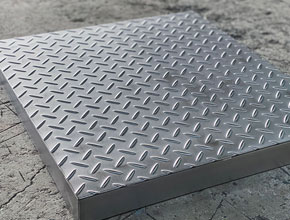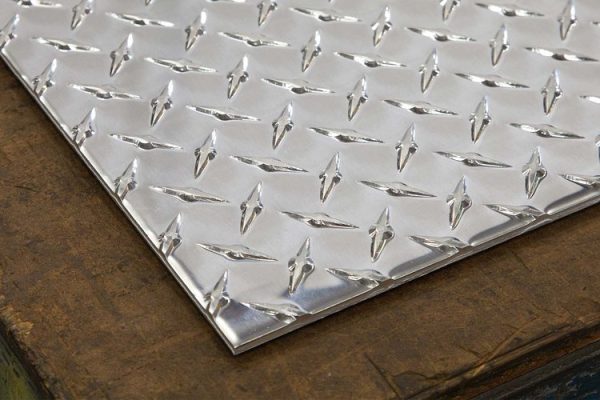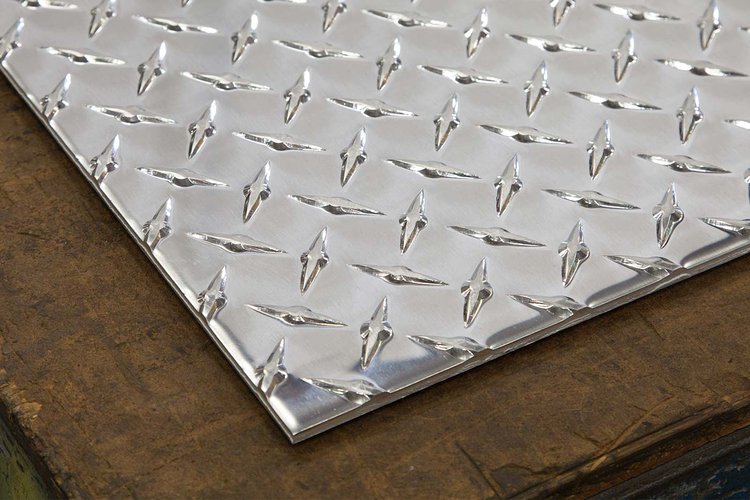Diamond steel sheet price
Diamond steel sheets are a versatile type of steel known for their strength, durability, and resistance to corrosion. Their pricing can vary significantly depending on several factors, including:

- Thickness: Thicker sheets generally cost more due to the increased amount of material used.
- Size: Larger sheets, such as those used for industrial applications, tend to be priced higher.
- Grade: The quality of the steel and its specific properties, such as tensile strength and yield strength, can influence the price.
- Finish: Coatings or treatments like galvanizing or painting can add to the cost.
- Supplier: Different suppliers may offer varying prices and terms based on factors like volume discounts, location, and market conditions.
- Market conditions: Fluctuations in steel prices, influenced by factors such as global demand, economic indicators, and geopolitical events, can impact the cost of diamond steel sheets.
To get the most accurate and up-to-date pricing information, it’s recommended to contact local steel suppliers or manufacturers directly. They can provide quotes tailored to your specific needs, offer insights into current market trends, and discuss any additional factors that may affect the price.
Online Resources for Pricing Information:
While online resources can provide a general idea of pricing, they might not always reflect real-time market conditions. Here are a few platforms you could explore:
- Metal marketplaces: Websites like Metals Depot, Online Metals, and Metal Superstore often list prices for various steel products, including diamond steel sheets. However, it’s essential to note that these prices might be indicative and can vary based on factors like quantity, location, and current market conditions.
- Steel manufacturers: Check the websites of major steel producers like ArcelorMittal, Nucor, and Steel Dynamics. They might provide general pricing information or have a contact form to request a quote.
- Local steel suppliers: Search for steel suppliers in your area and inquire about their pricing and availability. This is often the most reliable way to get accurate and up-to-date pricing information, as local suppliers can take into account factors like transportation costs, tariffs, and regional market trends.
Please note: Prices can fluctuate rapidly, so it’s essential to get quotes from multiple sources and compare them to ensure you’re getting the best deal.
Would you like me to help you find a steel supplier in your area? Please let me know your location, and I’ll provide you with some options.
Additionally, consider the following factors when evaluating pricing:
- Hidden costs: Be aware of potential hidden costs, such as delivery fees, taxes, and customs duties.
- Quality assurance: Ensure that the supplier can provide certificates of quality and compliance with relevant standards.
- Payment terms: Understand the payment terms and any associated fees.
- Lead times: Inquire about the estimated delivery time and any potential delays.
- Supplier reputation: Research the supplier’s reputation and customer reviews to assess their reliability and trustworthiness.
- Customization options: If you require specific customizations or modifications to the diamond steel sheets, inquire about the additional costs and potential lead times.
- Volume discounts: If you are purchasing a large quantity of sheets, ask about potential volume discounts or negotiated pricing.
- Future needs: Consider your future needs for diamond steel sheets and whether it makes sense to purchase a larger quantity upfront to benefit from potential discounts or avoid future price increases.
By carefully considering these factors and seeking quotes from multiple suppliers, you can make an informed decision and obtain the best possible price for your diamond steel sheet needs.
| Thickness (mm) | Price (USD/ton) | Notes |
|---|
| 1.5 mm | 800 USD/ton | Lower-end price for thinner sheets |
| 2.0 mm | 820 USD/ton |
| 2.5 mm | 850 USD/ton |
| 3.0 mm | 870 USD/ton |
| 3.5 mm | 900 USD/ton | Mid-range price |
| 4.0 mm | 920 USD/ton |
| 5.0 mm | 950 USD/ton |
| 6.0 mm | 1000 USD/ton | Higher-end price for thicker sheets |
Diamond Steel Sheet Quality: A Comprehensive Guide
Diamond steel sheets are known for their exceptional quality, durability, and performance. They are a popular choice in various industries due to their superior properties. Here’s a breakdown of the key factors that contribute to the high quality of diamond steel sheets:

1. Composition and Alloying:
- Carbon content: The precise carbon content in diamond steel sheets is carefully controlled to achieve the desired balance of strength, hardness, and ductility.
- Alloying elements: Additional elements like manganese, silicon, phosphorus, and sulfur are added in specific proportions to enhance the mechanical properties and resistance to corrosion.
2. Manufacturing Process:
- Hot rolling: The steel is heated to a high temperature and rolled into sheets of the desired thickness. This process improves the material’s strength and ductility.
- Cold rolling: The hot-rolled sheets may undergo further cold rolling to achieve the desired thickness, surface finish, and mechanical properties.
- Annealing: This heat treatment process is used to soften the steel and relieve internal stresses, improving its formability and reducing the risk of cracking.
3. Heat Treatment:
- Quenching: Rapid cooling after heating can increase the hardness and strength of the steel.
- Tempering: This process is used to reduce the brittleness of quenched steel while maintaining its hardness.
- Normalizing: This heat treatment process is used to refine the grain structure and improve the mechanical properties of the steel.
4. Surface Finish:
- Galvanizing: A zinc coating is applied to the steel surface to provide excellent corrosion resistance.
- Painting: Coatings can be applied to enhance the appearance and provide additional protection against corrosion and environmental factors.
- Other finishes: Additional finishes like pickling, passivation, or shot blasting can be used to achieve specific surface properties.
5. Quality Control:
- Testing: Rigorous testing procedures are followed to ensure that the diamond steel sheets meet or exceed the specified quality standards.
- Certification: Many manufacturers obtain certifications from reputable organizations to validate the quality of their products.
6. Applications:
- Construction: Diamond steel sheets are widely used in construction projects due to their strength, durability, and corrosion resistance.
- Manufacturing: They are used in various manufacturing processes, including automotive, machinery, and shipbuilding.
- Infrastructure: Diamond steel sheets are used in infrastructure projects such as bridges, tunnels, and pipelines.
Key factors to consider when evaluating the quality of diamond steel sheets:
- Propriétés mécaniques: Tensile strength, yield strength, hardness, and ductility are essential indicators of quality.
- Corrosion resistance: The ability of the steel to withstand corrosion is crucial in many applications.
- Formability: The ability of the steel to be shaped and formed without cracking is important for certain applications.
- Surface finish: The desired surface finish can vary depending on the application and aesthetic requirements.
- Certifications: Look for certifications from reputable organizations to verify the quality of the steel.

